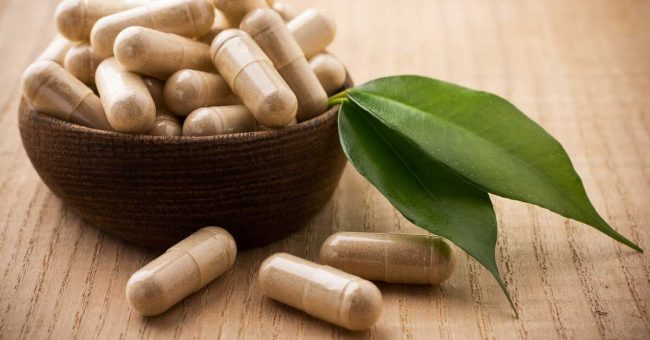If you are aware of great cognitive enhancers called nootropics, maybe you have heard about Ayurvedic medicine, where some of those smart drugs were started to be used, including Ashwagandha. To begin with, Ayurvedic medicine is known for more than 3 thousand years, when it first came into practice in India. Some of the native herbs were used for various purposes involving both mind and body.
The word Ayurveda came from the Sanskrit language and has the meaning of knowledge of longevity and life. In regards to its values, this alternative medicine can be compared with Jainism or Buddhism. The main foundation is the balance, Ayurveda practisers believed that only a precise balance of body and mind will ensure wellness.
Now, going back to Ashwagandha, this herb is also known by a variety of names, such as Indian Ginseng, Rasayana or Winter Cherry etc. However, since Ashwagandha is mostly used, let’s tackle its meaning. Based on Sanskrit, “Ashwa” is a term of horse and “Gandha” is translated into a smell. Although the smell isn’t very pleasant, the benefits offset.
Before analyzing Ashwagandha’s benefits, we would like to tell how this evergreen shrub, found in particularly dry regions, transforms into a powerful supplement.
The most valuable part of Ashwagandha herb is its roots, which usually is the main ingredient preparing Ashwagandha supplement. The recipe also came from Ayurveda, and according to the initial impression looks very simple. Dried Ashwagandha roots have to be ground with water, when the paste is made, the beverage can be consumed.
Related: Psychology In Sport: How To Become A Top Athlete From An Average One
Benefits of Ashwagandha
1.Stress and Anxiety
This benefit might be called the main effect of Ashwagandha and the first reason why anyone has chosen exactly this root. Studies have shown that Ashwagandha helps the body to fight with stress and change the response to stressful situations. The herb serves not only as a stress reductant but also as an anxiety alleviator too.
The potential benefits related to calming effects appear after two weeks of usage, but the first signs of relaxation will visit you at the beginning.
2. Metabolism
One of the Ashwagandha’s features is related to metabolism, or specifically to anabolism. The previous definition stands for the formation of complex structures, contrary to catabolism. According to research, Ashwagandha might improve weight gain during the growing period. It also takes care of the health of our body by regulating certain hormone levels and reducing fats.
3. Heart health
Ashwagandha’s effects on the heart cannot be deniable. This herb has an influence on blood maintenance, heart diseases alleviation and another malaise related to the heart. If your blood pressure or sugar levels are too high, you are coping with several heart diseases, Ashwagandha can make a big contribution.
Do not forget that unbalanced blood condition can cause mental issues such as depression, so take care of yourself without any exceptions.
4. Arthritis
Another benefit comes with anti-inflammatory properties and can be very helpful if you are facing arthritis or joint pain. By interacting with the nerve system, Ashwagandha prevents certain signals from being sent, including pain.
5. Memory and brain performance
Some studies were made to examine Ashwagandha’s capability regarding memory functioning, especially for Alzheimer’s and Parkinson’s patients. Results have shown that Ashwagandha herb alleviates brain damage and certain symptoms of previous diseases. Moreover, longer usage of Ashwagandha improved brain performance and cognitive function.
6. Antioxidant
Lastly, antioxidant properties also have to be mentioned. According to certain findings, Ashwagandha might fight with free radicals and protect certain cells from damage. In that way, even serious diseases or even cancer can be prevented or alleviated. Much more, antioxidants participate in reparation of DNA and good molecules.
Side effects of Ashwagandha
Every supplement has possible side effects that can appear, Ashwagandha is not an exception. Even if the risk of it is lower than with other certain nootropics, you still have to be prepared and aware of it.
Ashwagandha may lower blood pressure, so if you have any malaise related to pressure, talk to your doctor before starting to take Ashwagandha. Other side effects can be diarrhea, fatigue or nausea, also Ashwagandha increases the activity of the immune system, which can be bad if you are facing auto-immune system diseases.
In addition, if you have a stomach ulcer, bear in mind that Ashwagandha can cause damage and pain. Ashwagandha also increases levels of thyroid hormone, which can be both beneficial and harmful.
Dosage of Ashwagandha
We won’t recommend using Ashwagandha for more than 3 months, because there is no evidence about how this herb works for a longer period. Ashwagandha can be taken in different forms of supplementation, including powder and capsules.
Daily dosage usually varies from 400 mg to 2 g, but for a starter, we would recommend to begin with a lower one and then gradually raise it. Ashwagandha should be taken with food.
The side effects that we have mentioned earlier often appear because of inappropriate dosage, so take it seriously and do not overdose.
Ashwagandha, combined with other nootropics
Almost every nootropic has its companion that can be taken at the same time for the improvement of certain effects. Ashwagandha has such companions as well, so let’s get to know some of them.
First one is Maca Root, a highly nutritious herb that can be beneficial libido, fertility, and also for a good mood. By taking Ashwagandha together with Maca you can improve calmness and reduce stress more smoothly.
Bacopa Monnieri or also known as Brahmi can be a good companion for Ashwagandha. Users often report better effects of each when taking them together. The key feature of Brahmi is alert calmness, so together with Ashwagandha, you may feel not only the relaxation but also improved sharpness of mind.
Despite beneficial nootropics that can be combined, there are some that should not be taken together, such as Rhodiola Rosea. Before trying to make a combination, assure it won’t be harmful to your body and mind.







































































































1 Comment
I LIKE TO KNOW WHERE TO GET ASHWAGANDHA IN HARARE